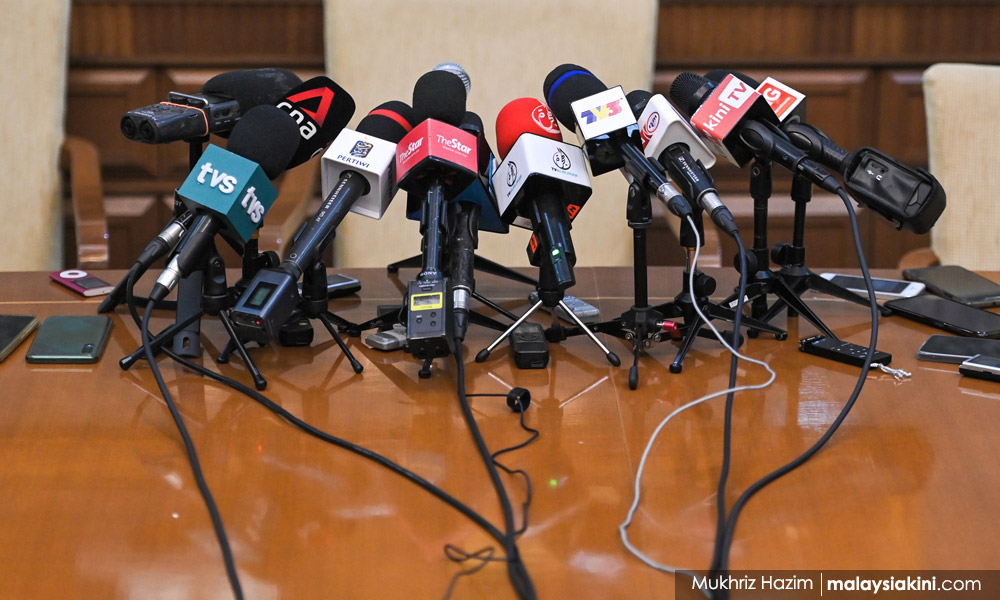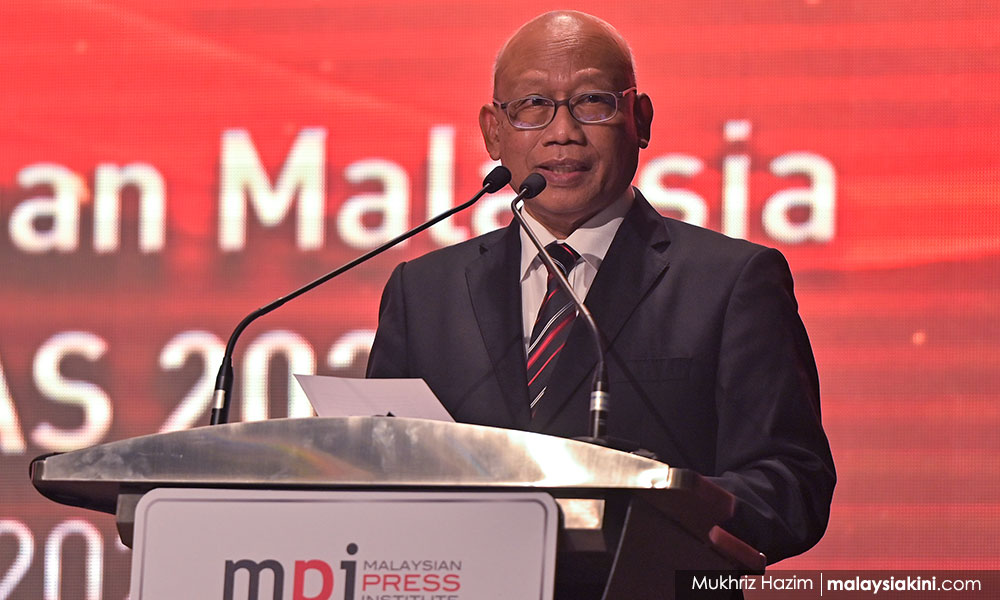The Media Council will not function properly if “repressive” laws still exist within the system, said University of Nottingham Malaysia academic Zaharom Nain.
Zaharom (above) stressed that laws such as the Printing Presses and Publications Act (PPPA) 1984 and Communications and Multimedia Act (CMA) 1998 will prevent the council from liberating the media as it is intended to do.
Speaking at the World Press Freedom Forum 2023 in Kuala Lumpur today, he also said the relevant ministers should not take this matter lightly.
“Since the 1990s, we have been trying to fight against these repressive acts. We've got the PPPA and CMA.
“We can't have ministers saying ‘we haven't thought about it yet’ (on repealing the acts).
“I think we need to have ministers and leaders who will say ‘Yes, I will do something about it’ or ‘Yes, I've looked at it’.
“The PPPA has been around for ages... look at it, study it, criticise it and destroy it because, in this kind of environment, you are not going to have a media council that actually functions very well,” the academic said.
Zaharom also stated that in an environment controlled by draconian laws, setting up a council is only a small step forward for the media industry in Malaysia.
He equated the council to a “band-aid” for a society that needs more reforms.
Earlier today, Communications and Digital Minister Fahmi Fadzil said the government has yet to discuss repealing the PPPA.

Fahmi, who was also present at the forum, was asked if he personally thought the Act should be repealed but declined to provide comments.
Council and court
On May 28, Fahmi said his ministry was committed to forming the media council, with the Bill expected to be tabled in Parliament by March next year.
This is the government’s commitment to continue enhancing media freedom and assist media practitioners to face challenges, he added.
Fahmi noted that the Bill was in its final stage of drafting and that his ministry will soon conduct engagement sessions with media industry players.
Meanwhile, Malaysiakini journalist Aidila Razak, who was also a panellist, stated the council may not be able to solve every problem faced by media practitioners.
However, she did highlight that it could potentially safeguard the personnel from troubles with the law.
“One problem which we face a lot now is strategic litigations against the media, so we have a lot of defamation suits, injunctions or letters of demand.
“These, especially in the newsroom, are the things that we worry more about compared to the other repressive laws that we face.
“Because even if we go to court and win, that already costs us hundreds of thousands of ringgit which we do not have and that could mean closure for some media companies.
“Having this council would protect us in a way that there are alternatives to that kind of legal route, (to) provide arbitration so that we don't have to be scared about getting a letter of demand,” she said.

Aidila elaborated that media practitioners can still be sued and charged under various laws even with a council.
Nonetheless, she said the council can act as the first point of contact if an individual has issues with content published by the media, instead of immediately taking legal action.
On the other hand, Malaysian Press Institute chief executive officer Chamil Wariya noted that there are currently more than 40 members of the media in the council’s pro-tem committee.

He said that the members have met with the Communications and Digital Ministry twice, specifically with Deputy Minister Teo Nie Ching, to help draft the bill.
The veteran reporter was also asked how the council would be funded - to which he said the committee proposed to the government that, for the first few years of its existence, it will rely on taxpayers’ funds.
“We have not set the quantum yet but (it is) to make sure that the fund is enough for the council to run properly.
“We want to be funded with money from the taxpayers only for a few years and hopefully after that, we will think of a new model for funding,” he said.
Chamil then explained three alternative funding models that the council have come up with, either to rely on the government, donations from individuals who are “eager to preserve press freedom” or contributions from the media industry.
“I think mainly, the council must be financially independent,” he said. - Mkini




No comments:
Post a Comment
Note: Only a member of this blog may post a comment.